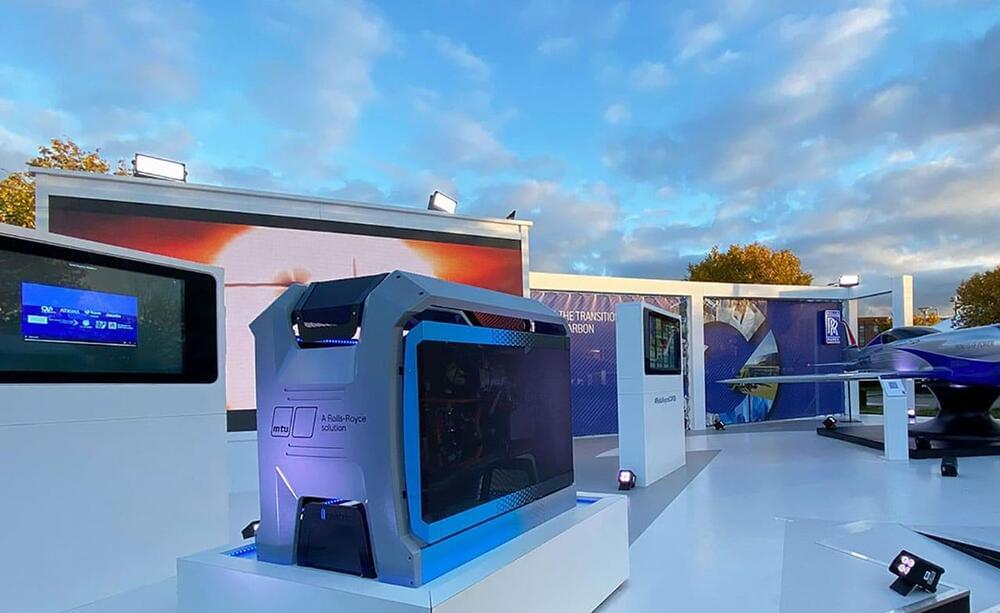By Jeremy Batterson 11-09-2021
The equivalent of cheap 100-inch binoculars will soon be possible. This memo is a quick update on seven rapidly converging technologies that augur well for astronomy enthusiasts of the near future. All these technologies already exist in either fully developed or nascent form, and all are being rapidly improved due to the gigantic global cell phone market and the retinal projection market that will soon replace it. Listed here are the multiple technologies, after which they are brought together into a single system.
1) Tracking.
2) Single-photon image sensing.
3) Large effective exit pupils via large sensors.
4) Long exposure non-photographic function.
5) Flat optics (metamaterials)
6) Off-axis function of flat optics.
7) Retinal projection.
1) TRACKING: this is already being widely used in so-called “go-to” telescopes, where the instrument will find any object and track it, so Earth’s rotation does not take the object viewed out of the field of vision. The viewer doesn’t have to find the object and doesn’t have to set up the clock drive to track it. Tracking is also partly used in image stabilization software for cameras and smart phones, to prevent motion blurring of images.
2) SINGLE-PHOTON IMAGE SENSORS, whether of the single-photon avalanching diode type, or the type developed by Dr. Fossum, will allow passive imaging in nearly totally dark environments, without the use of IR or other illumination. This new type of image sensor will replace the monochromatic analogue “night-vision” devices, allowing color imaging at higher resolution than they can produce. Unlike these current devices, such sensors will not be destroyed by being exposed to normal or high lighting. Effectively, these sensors increase the effective light-gathering power of a telescope by at least an order of magnitude, allowing small telescopes to see what observatory telescopes see now.
3) EXIT PUPIL: The pupil of the dark-adapted human eye is around 7mm, which means light exiting a telescope must not have a wider-cross axis than this, or a percent of the light captured by the objective lens or mirror will be lost. If the magnification of a system is lowered, to give brighter images, this is limited by this roadblock. This is a well-known problem for visual astronomers. Astro-photographers get around this by two tricks. The first is to use a photographic sensor wider than 7mm, allowing a larger exit pupil and thus brighter images. A 1-inch sensor or photographic plate, for example, already allows an image thirteen times brighter than what a 7mm human pupil can see.
4) LONG EXPOSURE: The other trick astro-photographers use is to keep the shutter of their cameras open for longer periods, thus capturing more light, and allowing a bright image of a faint object to build up over time. As a telescope tracks the stars–so that they appear motionless in the telescopic view–this can be done for hours. The Hubble Space Telescope took a 100 hour long-exposure photograph leading to the famous “deep field” of ultra-faint distant galaxies. An example of a visual use of the same principle is the Sionyx Pro camera, which keeps the shutter open for a fraction of a second. If the exposures are short enough, a video can be produced which appears brighter than what the unaided eye sees. Sionyx adds to this with its black-silicon sensors, which are better at retaining all light that hits them. For astronomy, where stellar objects do not move and do not cause blurring if they are tracked, longer exposures can be created, with the image rapidly brightening as the viewer watches. Unistellar’s eVscope and Vaonis’s Stellina telescope, already use this function, but without an eyepiece. Instead, their images are projected onto people’s cell phones or other viewing devices. However, most astronomers want to be able to see something directly with their eyes, which is a limiting point on such types of telescopes.


